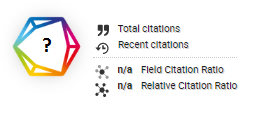ANALISIS KINERJA MODUL PENGENDALI TEKANAN UDARA PCT-14 BERBASIS PLC DENGAN BERBAGAI METODA TUNING
DOI:
https://doi.org/10.46984/sebatik.v26i2.2134Keywords:
Pembelajaran praktikum, Perubahan set point, Respon cepat, Respon proses, Settling time, OffsetAbstract
Pembelajaran pada situasi pandemi Covid-19 menjadi tantangan tersendiri bagi perguruan tinggi vokasi (PTV). PTV harus memastikan bahwa kompetensi mahasiswa memenuhi capaian pembelajaran yang telah ditetapkan. Simulasi dari pembelajaran praktikum menjadi jawaban atas tantangan tersebut. Simulasi dari modul pengendali tekanan PCT-14 disusun untuk memberikan gambaran proses sistem kendali kepada mahasiswa yang tidak dapat melakukan praktikum secara luring. Kestabilan model simulasi diuji dengan membandingkan kinerja model simulasi menggunakan parameter pengendali hasil dari beberapa metode tuning. Beberapa metode tuning tersebut diterapkan untuk melihat respon simulasi modul pengendali tekanan udara PCT-14 dalam mengatasi perubahan set point (servo system). Metode tuning yang diterapkan, yaitu metode Cohen – Coon – CC, Ziegler Nichols – ZN, Good – Gain – GG, danSkogestad’s. Kinerja model simulasi dilihat dari nilai settling time, rise time, overshoot dan offset dari masing-masing respon. Hasil penelitian menunjukkan bahwa semua metode tuning menghasilkan parameter pengendali yang memberi respon stabil untuk simulasi modul pengendali tekanan udara (PCT-14). Respon terbaik dihasilkan ketika menggunakan parameter PID hasil tuning metode Skogestad’s untuk PI controller dan tuning metode GG untuk PID controller. Kinerja respon dengan parameter pengendali tersebut menunjukkan nilai settling time 14 detik untuk PID controller dan 13 detik untuk PI controller, dengan sedikit offset (1%).
References
Anusha, S., Karpagam, G. and Bhuvaneswarri, E. 2014. ‘Comparison of Tuning Methods of Pid Controller’. BEST: International Journal of Management, Information Technology and Engineering (BEST: IJMITE), 2(8), pp. 1–8.
Azman, A.A. et al. 2017. ‘Modeling and comparative study of PID Ziegler Nichols (ZN) and Cohen-Coon (CC) tuning method for Multi-tube aluminum sulphate water filter (MTAS)’. in Proceedings - 2017 IEEE 2nd International Conference on Automatic Control and Intelligent Systems, I2CACIS 2017, pp. 25–30. Available at: https://doi.org/10.1109/I2CACIS.2017.8239027.
Buiu, C. 2020. ‘a Modelling and Simulation Course for Engineering Students Using Open-Source Programs’. INTED2020 Proceedings, 1, pp. 2943–2948. Available at: https://doi.org/10.21125/inted.2020.0875.
Fadali, M.S. and Visioli, A. 2020. ‘Analog control system design’. in Digital Control Engineering. Academic Press, pp. 141–179. Available at: https://doi.org/10.1016/B978-0-12-814433-6.00005-3.
González-Vargas, A.M. et al. 2019. ‘A low-cost, free-software platform with hard real-time performance for control engineering education’. Computer Applications in Engineering Education, 27(2), pp. 406–418. Available at: https://doi.org/10.1002/cae.22084.
Hermawan, Y.D. et al. 2020. ‘Process Dynamic of Two-Thermal-Tank-Series with Dead Time’. Eksergi, 17(2), p. 45. Available at: https://doi.org/10.31315/e.v17i2.3700.
Irfin, Z., Suharti, P.H. and Moentamaria, D. 2017. ‘Optimasi Kinerja Pengendali Tekanan PCT-14 Menggunakan Metoda Tuning Skogestad’. in Prosiding Seminar Nasional Rekayasa Proses Industri Kimia, ISSN: 2580-6572, pp. 49–54.
Isdaryani, F., Feriyonika, F. and Ferdiansyah, R. 2020. ‘Comparison of Ziegler-Nichols and Cohen Coon tuning method for magnetic levitation control system’. Journal of Physics: Conference Series, 1450(1). Available at: https://doi.org/10.1088/1742-6596/1450/1/012033.
Iyswariya, A. et al. 2015. ‘Design of PI Controller using First Order Plus Time Delay Model for Process Control’. International Journal of Advanced Research in Electronics and Communication Engineering (IJARECE), 4(3).
Joseph, E. and Olaiya, O.. 2018. ‘Cohen-Coon PID Tuning Method: A Better Option to Ziegler Nichols-Pid Tuning Method’. Computer Engineering and Intelligent Systems, 9(5), pp. 33–37.
Kumar, V. and Patra, A. 2016. ‘Application of Ziegler-Nichols Method for Tuning of PID Controller’. 2nd International Conference on Recent Innovations in Science, Technology, Management and Environment, (2011), pp. 138–149.
Kurniawan, E. et al. 2020. ‘Analysis and Simulation of PI and PID Control Systems Using Xcos Scilab’. Journal of Technomaterial Physics, 2(2), pp. 108–116.
Liermann, M. 2013. ‘Pid tuning rule for pressure control applications’. International Journal of Fluid Power, 14(1), pp. 7–15. Available at: https://doi.org/10.1080/14399776.2013.10781064.
Liu, Y. et al. 2014. ‘IMC-PID Controller and the Tuning Method in Pneumatic Control Valve Positioner’. The Open Automation and Control Systems Journal, 6, pp. 1578–1585.
Merzlikina, E.I. and Prochina, O.G. 2020. ‘Laboratory Works on Control Theory Using Scilab/Xcos’. 2020 5th International Conference on Information Technologies in Engineering Education, Inforino 2020 - Proceedings, pp. 6–9. Available at: https://doi.org/10.1109/Inforino48376.2020.9111704.
N.n 2016. Theoretical Consideration of Retarded Control. Dataforth Application Notes. Available at: https://doi.org/10.1115/1.4015451.
Nie, W. et al. 2020. ‘A Tuning Method for PID Controller Parameters based on Particle Swarm Optimization (PSO)’. in Chinese Automation Congress (CAC), pp. 497–501. Available at: https://doi.org/10.1109/CAC51589.2020.9327536.
Ospino, J., Sánchez, M.E. and Secchi, A.R. 2017. ‘Implementation of a block-oriented model library for undergraduate process control courses in EMSO simulator’. Education for Chemical Engineers, 18, pp. 45–57. Available at: https://doi.org/10.1016/j.ece.2016.08.002.
Pohny, P. 2017. ‘Sistem Kendali Metode PID Dan Kombinasi Spesifikasi Pada Kecepatan Tinggi Induksi Motor’. Sebatik, 18(1), pp. 17–20. Available at: https://doi.org/10.46984/sebatik.v18i1.86.
Rao, P.V.G.K., Subramanyam, M. V. and Satyaprasad, K. 2014. ‘Study on PID controller design and performance based on tuning techniques’. in International Conference on Control, Instrumentation, Communication and Computational Technologies, ICCICCT 2014, pp. 1411–1417. Available at: https://doi.org/10.1109/ICCICCT.2014.6993183.
Suharti, P.H. and Irfin, Z. 2017. ‘Tuning Metode Good Gain pada Sistem Pengendali tanpa Dead Time , Studi Kasus : Modul Pengendali Tekanan ( PCT-14 )’. in Prosiding Seminar Nasional Rekayasa Proses Industri Kimia, ISSN: 2580-6572, pp. 55–60.
Utomo, A.C., Siwindarto, P. and Setyawati, O. 2020. ‘Reduced Overshoot of The Electroforming Jewellery Process Using PID’. Kinetik: Game Technology, Information System, Computer Network, Computing, Electronics, and Control, 4(3), pp. 227–234. Available at: https://doi.org/10.22219/kinetik.v5i3.1059.
Vieira, E.B. et al. 2019. ‘Application of Scilab/Xcos for process control applied to chemical engineering educational projects’. Computer Applications in Engineering Education, 27(1), pp. 154–165. Available at: https://doi.org/10.1002/cae.22065.
Downloads
Published
How to Cite
Issue
Section
License
Authors retain all their rights to the published works, such as (but not limited to) the following rights; Copyright and other proprietary rights relating to the article, such as patent rights, The right to use the substance of the article in own future works, including lectures and books, The right to reproduce the article for own purposes, The right to self-archive the article








